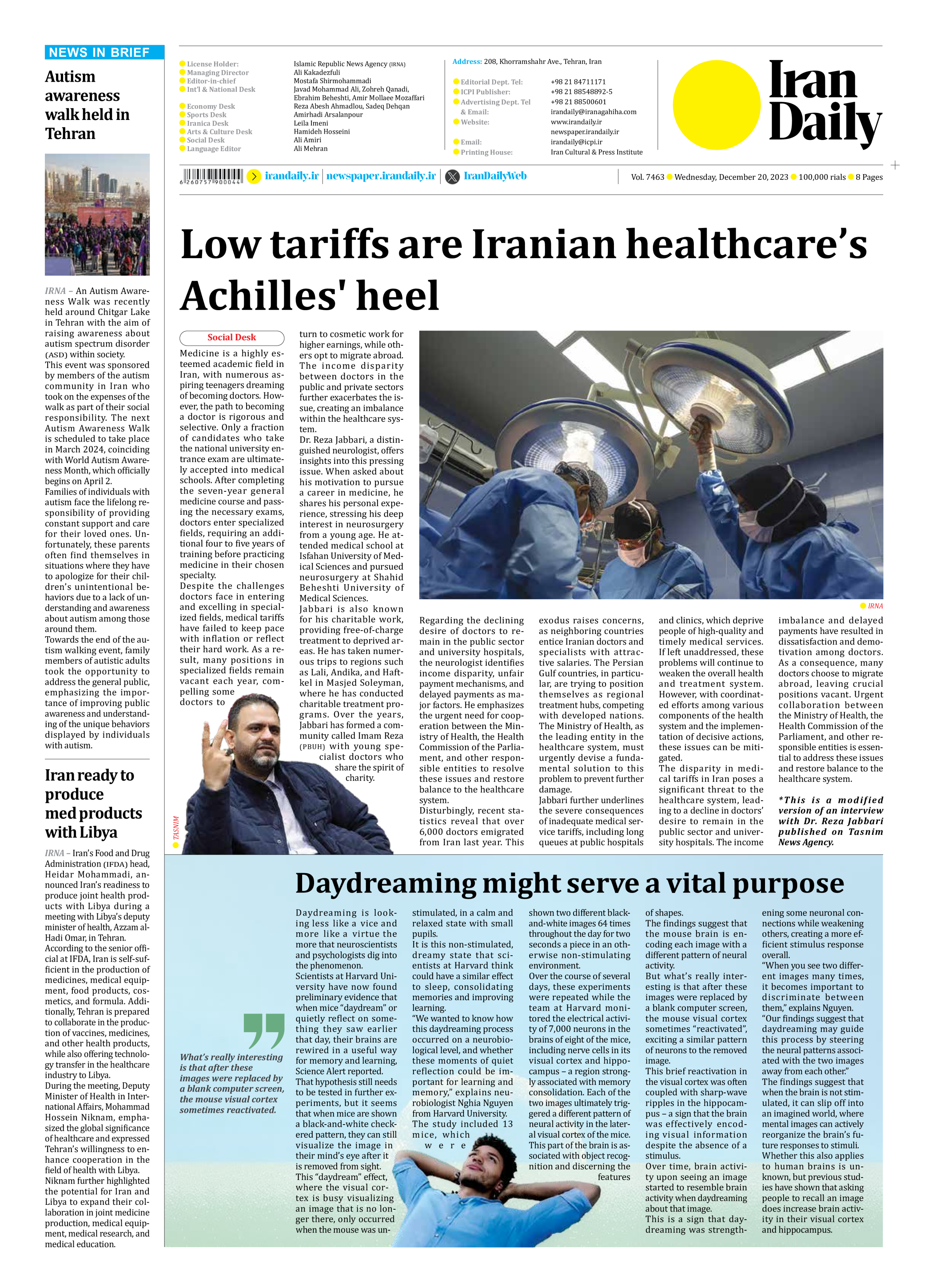
Low tariffs are Iranian healthcare’s Achilles’ heel
Medicine is a highly esteemed academic field in Iran, with numerous aspiring teenagers dreaming of becoming doctors. However, the path to becoming a doctor is rigorous and selective. Only a fraction of candidates who take the national university entrance exam are ultimately accepted into medical schools. After completing the seven-year general medicine course and passing the necessary exams, doctors enter specialized fields, requiring an additional four to five years of training before practicing medicine in their chosen specialty.
Despite the challenges doctors face in entering and excelling in specialized fields, medical tariffs have failed to keep pace with inflation or reflect their hard work. As a result, many positions in specialized fields remain vacant each year, compelling some doctors to turn to cosmetic work for higher earnings, while others opt to migrate abroad. The income disparity between doctors in the public and private sectors further exacerbates the issue, creating an imbalance within the healthcare system.
Dr. Reza Jabbari, a distinguished neurologist, offers insights into this pressing issue. When asked about his motivation to pursue a career in medicine, he shares his personal experience, stressing his deep interest in neurosurgery from a young age. He attended medical school at Isfahan University of Medical Sciences and pursued neurosurgery at Shahid Beheshti University of Medical Sciences.
Jabbari is also known for his charitable work, providing free-of-charge treatment to deprived areas. He has taken numerous trips to regions such as Lali, Andika, and Haftkel in Masjed Soleyman, where he has conducted charitable treatment programs. Over the years, Jabbari has formed a community called Imam Reza (PBUH) with young specialist doctors who share the spirit of
charity.
Regarding the declining desire of doctors to remain in the public sector and university hospitals, the neurologist identifies income disparity, unfair payment mechanisms, and delayed payments as major factors. He emphasizes the urgent need for cooperation between the Ministry of Health, the Health Commission of the Parliament, and other responsible entities to resolve these issues and restore balance to the healthcare
system.
Disturbingly, recent statistics reveal that over 6,000 doctors emigrated from Iran last year. This exodus raises concerns, as neighboring countries entice Iranian doctors and specialists with attractive salaries. The Persian Gulf countries, in particular, are trying to position themselves as regional treatment hubs, competing with developed nations. The Ministry of Health, as the leading entity in the healthcare system, must urgently devise a fundamental solution to this problem to prevent further damage.
Jabbari further underlines the severe consequences of inadequate medical service tariffs, including long queues at public hospitals and clinics, which deprive people of high-quality and timely medical services. If left unaddressed, these problems will continue to weaken the overall health and treatment system. However, with coordinated efforts among various components of the health system and the implementation of decisive actions, these issues can be mitigated.
The disparity in medical tariffs in Iran poses a significant threat to the healthcare system, leading to a decline in doctors’ desire to remain in the public sector and university hospitals. The income imbalance and delayed payments have resulted in dissatisfaction and demotivation among doctors. As a consequence, many doctors choose to migrate abroad, leaving crucial positions vacant. Urgent collaboration between the Ministry of Health, the Health Commission of the Parliament, and other responsible entities is essential to address these issues and restore balance to the healthcare system.
*This is a modified version of an interview with Dr. Reza Jabbari published on Tasnim News Agency.







